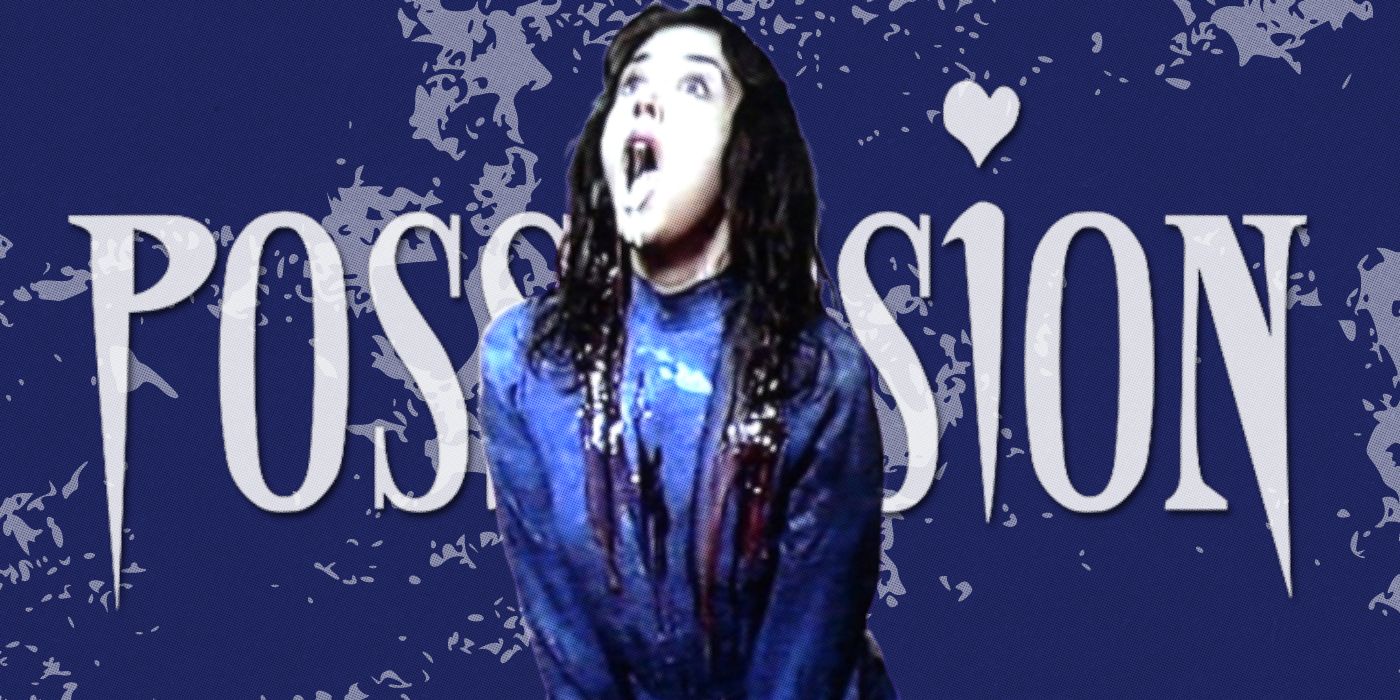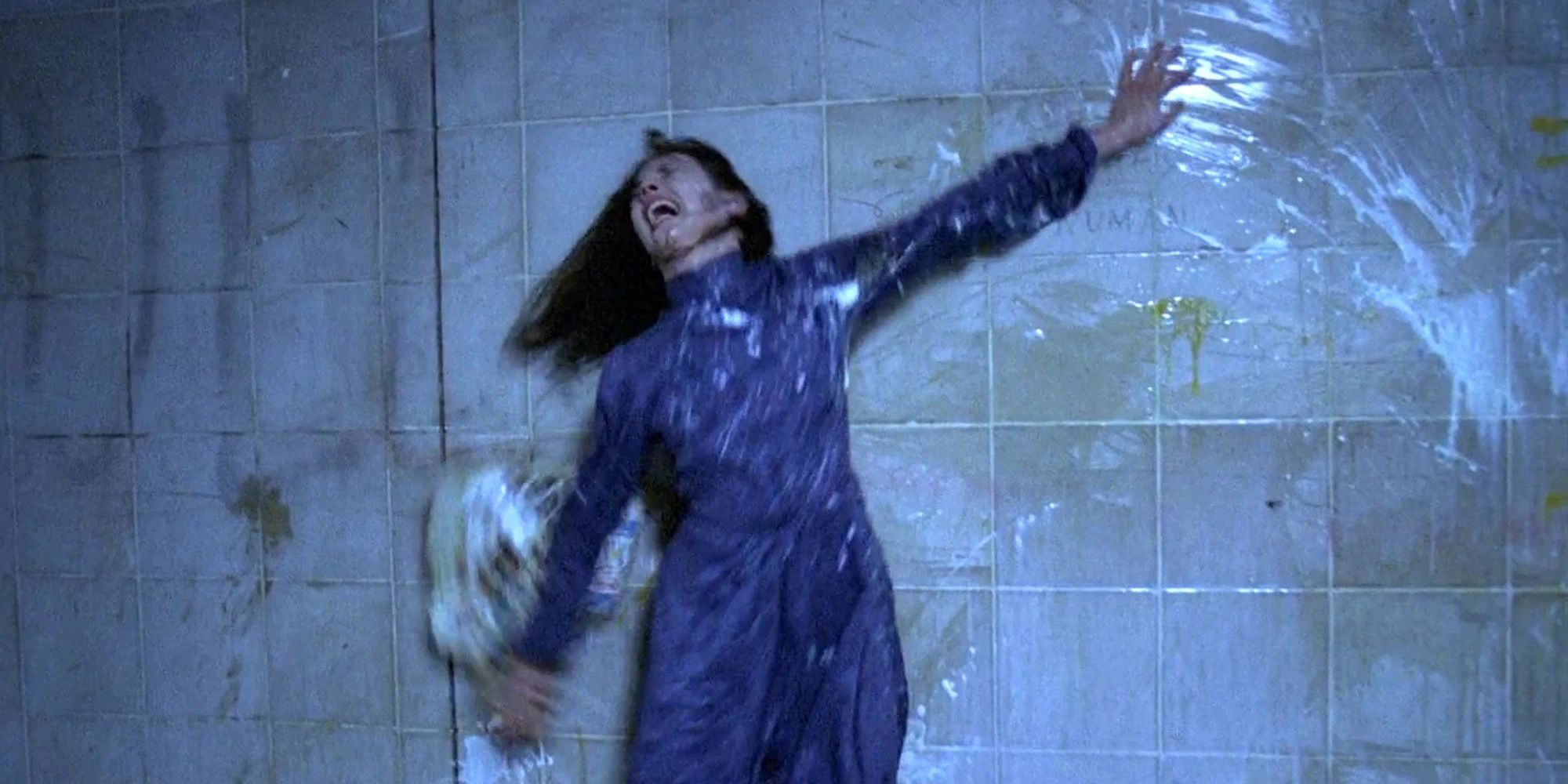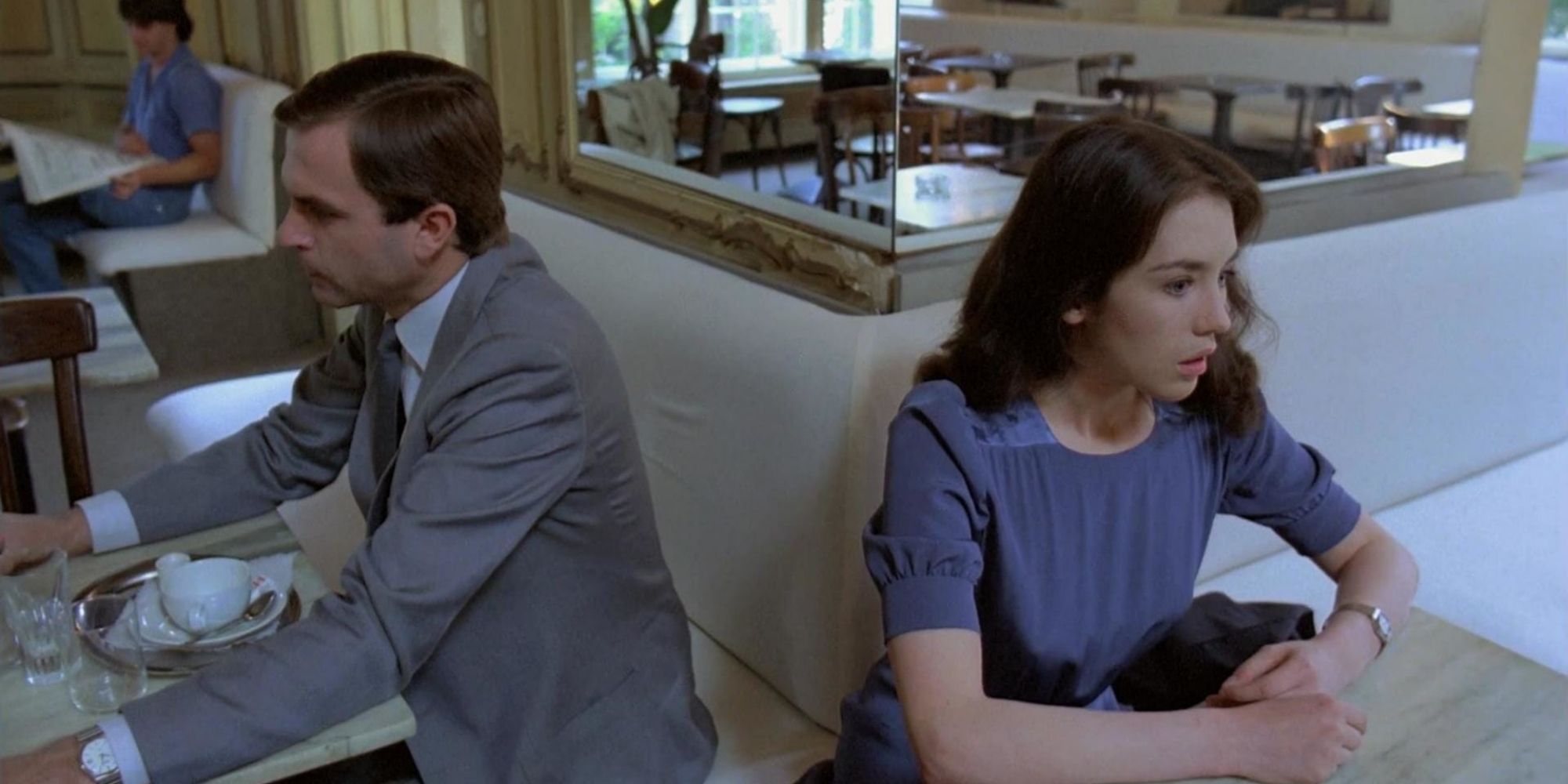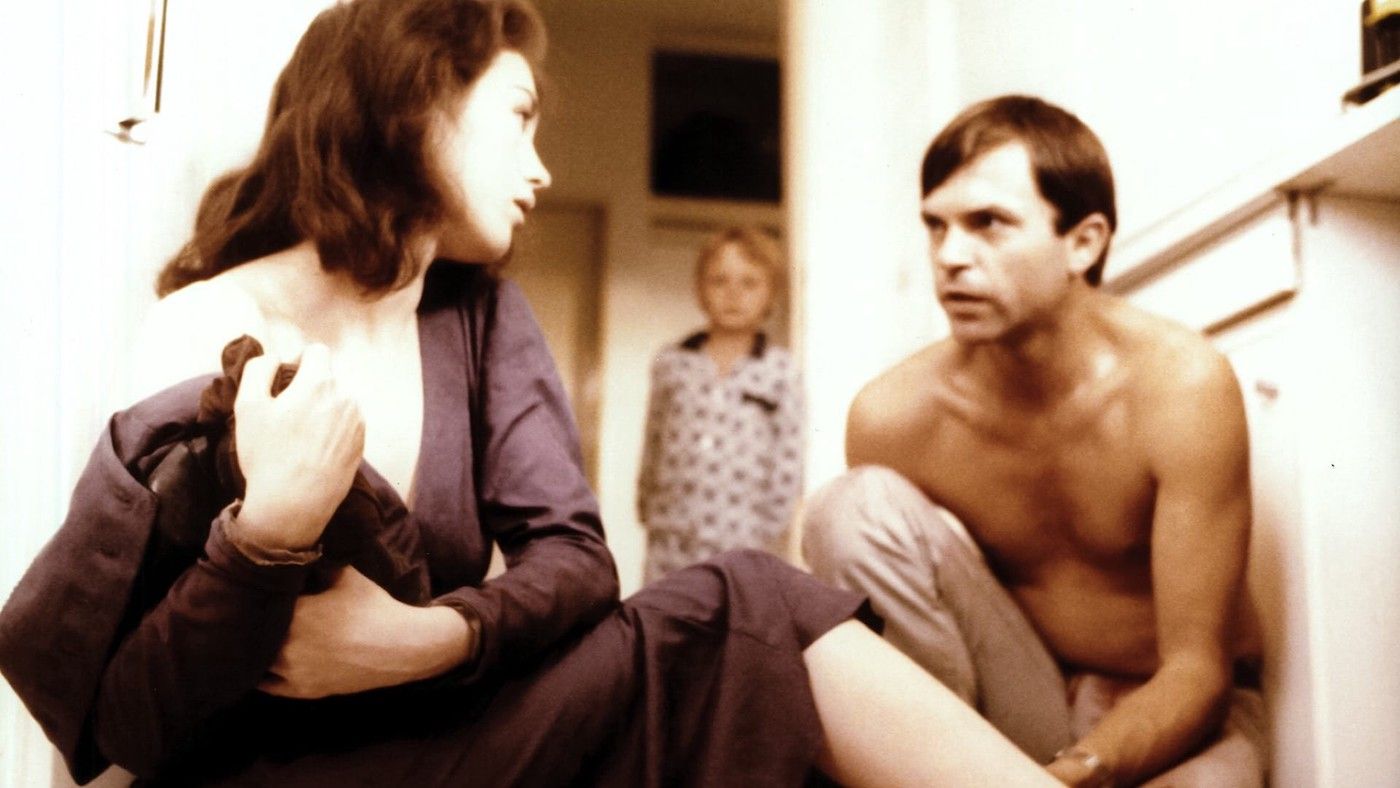Possession (1981) is the first, and only, English language film directed by Andrzej Zulawski. Despite widespread praise, a Palme d'Or nomination and a Best Actress win at Cannes for Isabelle Adjani, it was unfairly maligned and demonized for reasons that were never made explicit. This led to a place on the 'video nasty' list. Whilst a place on this list could act as a death sentence for films, it has also become something of a badge of honor for horror fans to seek out these nasty flicks, penalized for their portrayals of sex, gore and violence. But did Possession deserve its place on this list? It seems unfair to lump Possession in with some of the most notorious entries, such as I Spit on Your Grave (1978) and Cannibal Holocaust (1980). Whilst it may be an endurance test, an emotional gut punch and, by the third act, a downright insane ride into the depths of human despair, there is a tenderness to it and a gentle, easily bruised heart that beats beneath the slimy chaos.
Essentially, Possession, is a story of a failing marriage. Anna and Mark (Sam Neill) are strangers to each other. When Mark returns to their Berlin apartment after a mysterious work assignment, Anna informs him that they are getting divorced. So far, so normal, it's the plot of a thousand films, from Marriage Story to Blue Valentine. But as Mark tries to uncover the reason for her request, it becomes clear that infidelity is the least of their problems. As Anna grows increasingly erratic and unpredictable, Mark responds by gripping tighter to her coattails. The more he tries to restrain her, to keep her fixed within the bounds of their marriage, the more she descends into wild, chaotic abandon. This dynamic inevitably reaches boiling point, with Mark seeking to hurt Anna, in desperate need for a response, and Anna pulling further away from him in disgust.
As the film progresses, we are confronted with a number of shocking scenes, from the knock down, drag out, fights between Anna and Mark, through to murder, and sexual deviance. It is a disturbing film, but is also a piece of art that has refused to conform to classification, and one that continues to arouse, disgust and revile audiences, often simultaneously. What Possession does that so many films do not, is present the physical, spiritual and psychological violence of a relationship breakdown. That it was written in the aftermath of Zulawski's own divorce, calls to mind the similarly brutal and chaotic portrayal of a marriage in The Brood (1979) from body horror maestro David Cronenberg.
Love in Its Death Throes
It is unflinching in its portrayal of love in its death throes. From the start, we are forced to witness the entangled mess of love, loss and grief that accompanies the breakdown of a marriage. From the first scene, we can see that Anna is a woman on the edge, all wide open eyes and frantic energy. Her desire to break free from Mark, from the strangling grip of their relationship is clear, but we are never witness to their marriage before Anna smashes it to bits. This is a real strength of the film, we have no knowledge of their lives, if Mark is a bad husband, if Anna is a devoted wife, how long they have been together. All of this history is wiped out with Anna's decision to end it. Tellingly, this reminds the viewer that all this history does disappear when a relationship ends. It is a painful reminder that shared history, stories, and a life means nothing when one party is determined to end things.
Possession is also dogged in its presentation of the totality of the selfishness of Mark and Anna. They are consumed by their own feelings, their own desires. They have a young son, Bob, who becomes nothing more than a pawn in their sick game of bitterness and broken hearts. Mark attempts to use Bob to hurt Anna, trying to appeal to her guilt and shame as a woman who is prioritizing her own pleasure over her duties as a wife and mother. So consumed is Anna by her own quest for self-discovery that eventually, Bob fades into the background. It is clear to see how this dynamic influenced later films, such as Antichrist, in the enmeshed and toxic dynamic between Willem Defoe and Charlotte Gainsbourg.
Sex, Slime and Body Horror
It isn't possible to discuss Possession without discussing that scene. For the uninitiated, this scene is one in which Anna experiences an emotional, physical, and even a metaphysical breakdown in a subway tunnel. As Anna walks down the gloomy, deserted tunnel, heels clacking loudly, she suddenly starts to break out of the limits of her physicality and her sanity. Eggs are smashed, shrieks ring deafeningly around the walls, and Anna eventually ends up rolling on the ground, howling, before starting to expel viscous ichor and blood from every orifice, culminating in a writhing, spontaneous flood of bloody, gooey liberation. It is not difficult to imagine that this scene is one of the reasons for the shocked outrage about the film upon its release. It is disgusting, she is abject, and the scene represents an absolute rending of social boundaries. But a closer look at this scene reveals that it is a pivotal moment in Anna's painful transformation. As she later explains, what was miscarried in that tunnel was her faith, and she had to protect it. Faith, a slippery thing at the best of times, becomes in Anna's arms, a writhing, sweating and sinister creature.
This scene is pivotal in its presentation of women in horror. It would not be possible to consider later incarnations of fragile, yet powerful women without Adjani's performance here. Her total surrender to the chaos of the moment, her ability to present the liberation that comes from breaking out of the social and moral chains that bind us is compelling. Anna's intense sexual relationship with a slimy, slithering creature was groundbreaking at the time, and has not been widely replicated since. This is a shame, as this relationship highlights the transgressive nature of Anna's transformation, and confronts the viewer with this violation of the normal boundaries of sex and sexuality.
Allegorical Monsters
As with many horror films, the events and individuals in Possession can be interpreted as allegorical. Take, for example, Anna's relationship with her creature, a bizarre and incestuous union that defies both decency and sanity. If we return to her statement, that she miscarried her faith, and it is that faith that she has nurtured and fed in a run down, desolate apartment building, then we can interpret her relationship with the creature, and his eventual transformation into Mark's doppelgänger, as a means with which to rewrite the past. Indeed, the use of doppelgängers for both Mark and Anna speak to a desire to remake and reshape their lives. If we view this film as an attempt at catharsis for Zulawski then it becomes clear that this ending is designed to rewrite the past. By leaving Bob in the care of their, admittedly sinister, counterparts, Anna and Mark make space for parents who are better equipped. But in the catastrophic, if ambiguous, ending, we also see that this attempt to depart from responsibility has serious consequences, both for Bob, and the world they have built. It is an ending that shrieks with guilt, and sadness and acts as metaphor for both the heartache of a relationship breakdown and the need for rebirth that arises after a significant relationship ends.
The Monstrous Woman, A Danger to Mankind
Anna's fragility is not an alien concept in horror. Her increasing hysteria is reminiscent of the contagious level of terror displayed by Wendy (Shelly Duvall) in The Shining, and her craving for violence, as a means of feeling something in a world that requires numbness, shares parallels with Maggie Gyllenhaal's character in Secretary (2002). But Anna's behavior also disrupts the status quo, in a way that rejects the notions of patriarchy and misogyny that so often dominate horror. Her rejection of her "proper" place as a wife and mother, her commitment to abandoning her life, and her enthusiastic engagement with her own desires all acts as a slap in the face to dominant social norms. Indeed, misogyny runs throughout Possession tainting the relationships between the characters. Mark's real ire comes from his fury at being rejected by his wife, something he clearly thinks she has no right to do. Anna's relationship with Heinrich, sexually charged and fueled by her disinterest in him is almost cartoonish in its reinforcement of gender roles. Heinrich and Mark's eventual collaboration to uncover the 'other man' who has stolen Anna from them, is fueled both by sexual jealousy and the notion that she belongs to, and with them.
Anna's disinterest in these men is the first fracturing of misogyny in the film. This destruction continues with Mark's debasement at his own hands in front of her, begging, pleading, and eventually resorting to physical violence. After the violence, her smirking, tear stained face appalls him. How do you break down and dominate a woman without fear? How can you control a woman who has abandoned, or at least muffled, the voice of shame that tells her what she should not do? This is the true power of Anna's character, and, it is fair to say, one of the reasons she is often portrayed as unhinged, unlikeable and impossible to relate to in discussions of the film. For a woman to be unafraid, to make the choice to drop a bomb into her comfortable, easy life, makes her the antitheses of the 'good' woman. Thus, Anna represents the 'dangerous mad woman' that misogyny fears. That everyone around her sees this as a deficit in her character, a crumbling of her sanity, rather than as a reaction to her circumstances that speaks to the many ways women are pathologized.
Possession represents a fracturing, not only of the relationship between Anna and Mark, but also a political and social fracture, with its setting of 1980s Berlin. It is clear that for Zulawski, this film is a personal essay on his broken heart, divorced from his spouse and also his native Poland. Berlin, still reeling from the aftermath of the 1940s, is a brutalist landscape in which the emotional turmoil of a dying love can find an unhappy home, amidst the gray concrete and radical division of citizens. It is a film that was far ahead of its time, with its resonant emotional turmoil and violent, sensory horror. Its legacy lives on in films like Midsommar, with Ari Aster citing it as an influence, and it is wonderful to see it arrive on Shudder, allowing another generation of viewers to be seduced and tormented.




